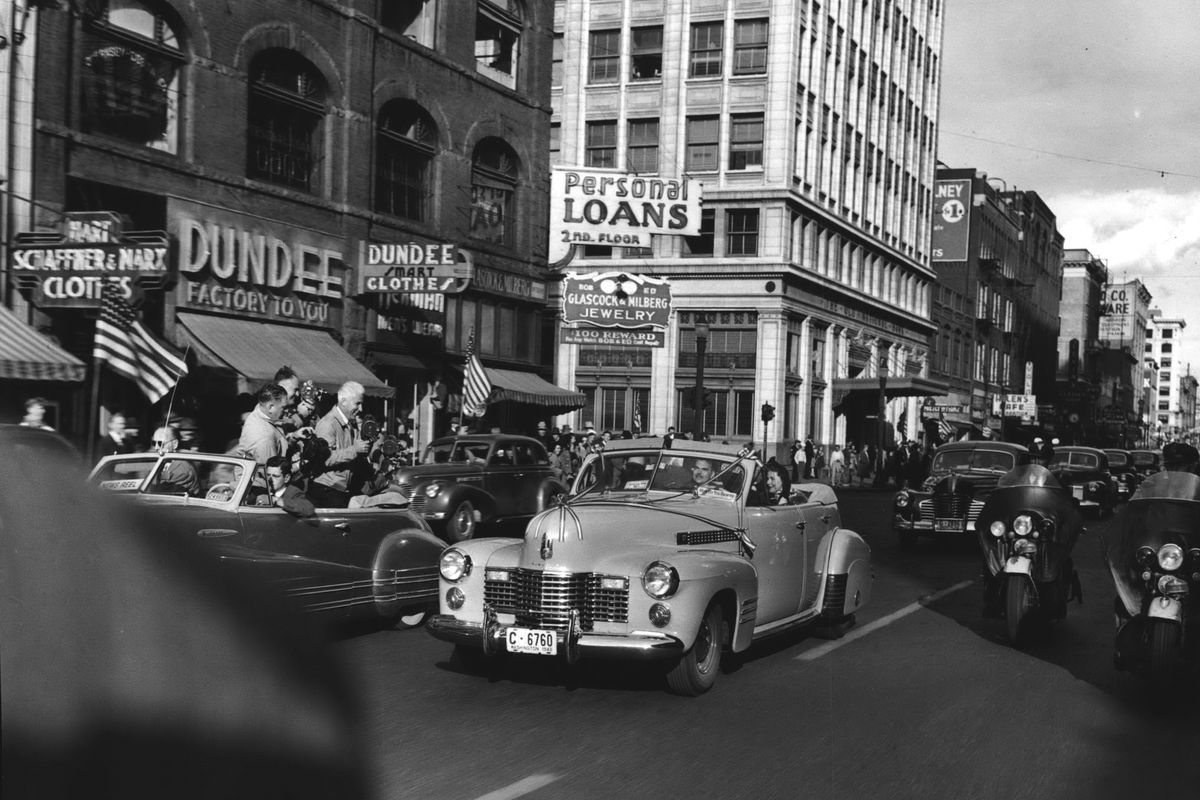Then and Now: GOP nominee Thomas Dewey’s trip to Spokane in 1944

In presidential election years, Spokane doesn’t often see the top contenders, so it was a big deal when New York Gov. Thomas Dewey, the Republican nominee, made a two-day campaign stop in the Lilac City in September of 1944.
The city of Spokane prepared a welcome with speeches, banquets and numerous dignitaries.
Dewey had made his name in the 1930s as a crusading New York City prosecutor who took down mobsters Lucky Luciano and Waxey Gordon. He was relatively young, born in 1902. If elected, he would be the first president born in the 20th century.
But he was running against President Franklin Roosevelt, an immensely popular chief executive who was seeking his fourth term at a time when the wars in the Pacific and Europe were still raging.
But there was some confidence that the U.S. and its allies would eventually win and life could return to normal in the next presidential term. The Spokesman-Review editorial page pushed Dewey’s criticism of FDR and his policies.
“Give us four more years of Roosevelt and we shall have a totalitarian socialist country,” said one editorial.
After a brief stop in Coeur d’Alene, Gov. Dewey and his wife, Frances, arrived in Spokane on their 13-car private train on the Northern Pacific Railway Sept. 16, 1944.
The dapper lawyer was greeted by several thousand Spokanites and Washington Gov. Arthur Langlie.
Dewey declined many offers to speak to groups in Spokane and spent much of his time in the city in meetings, listening to ranchers, miners and lumbermen. He declared that if elected, he would appoint a Westerner as Secretary of the Interior.
Dewey left on Sunday, Sept. 17, after attending St. John the Evangelist Episcopal Church.
Dewey lost the election with 45.9% of the vote to FDR’s 53.4%, but it was the best any presidential candidate had done against Roosevelt.
FDR died in April 1945, and Vice President Harry Truman became president. The war was soon won, but the slowing economy presented new problems.
Gov. Dewey was nominated again in 1948, and it seemed likely that the weak postwar economy and the Democratic vote split by the segregationist Dixiecrats would tilt the odds in Dewey’s favor.
But Truman pulled out an unexpected victory that election night, while a handful of newspapers famously ran headlines reading “Dewey beats Truman.”